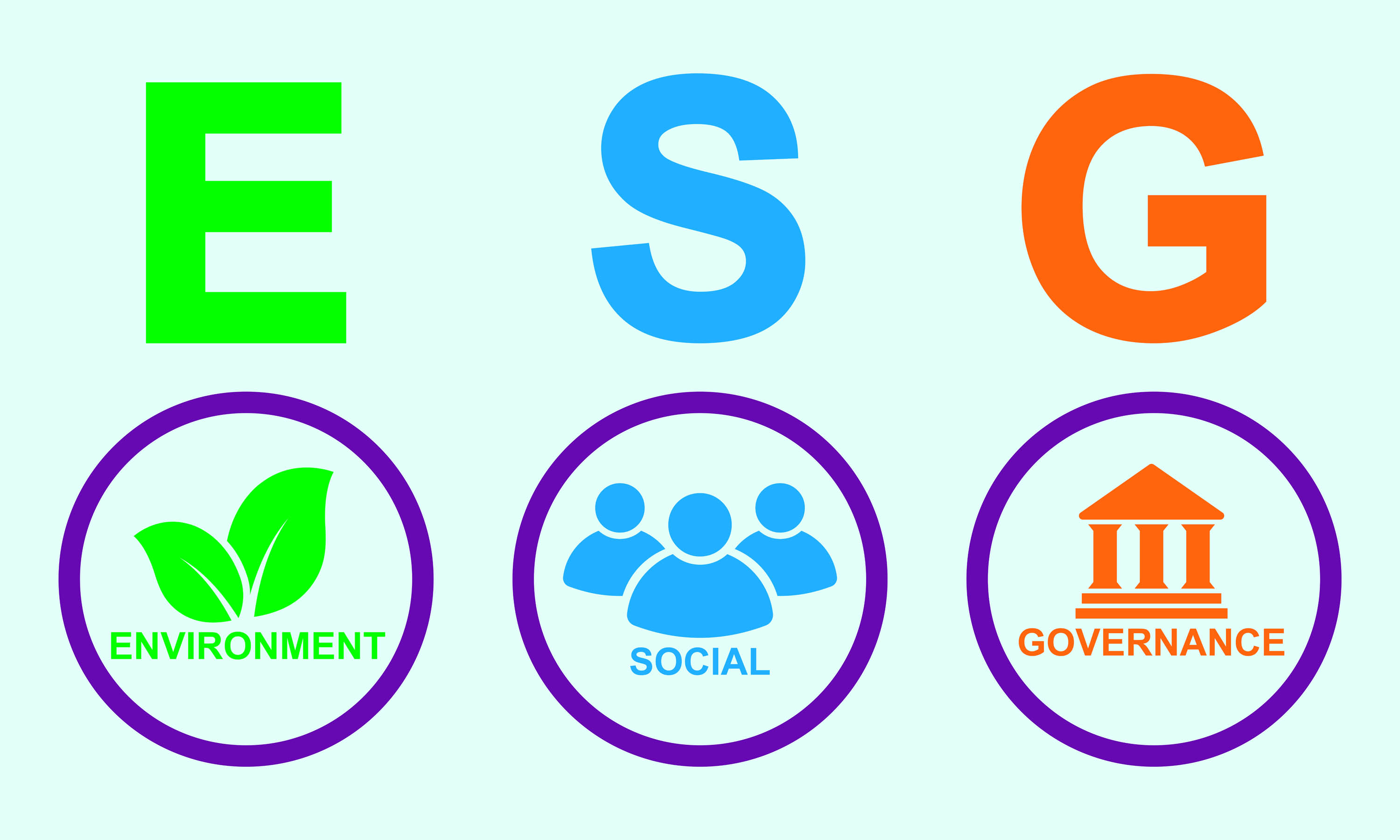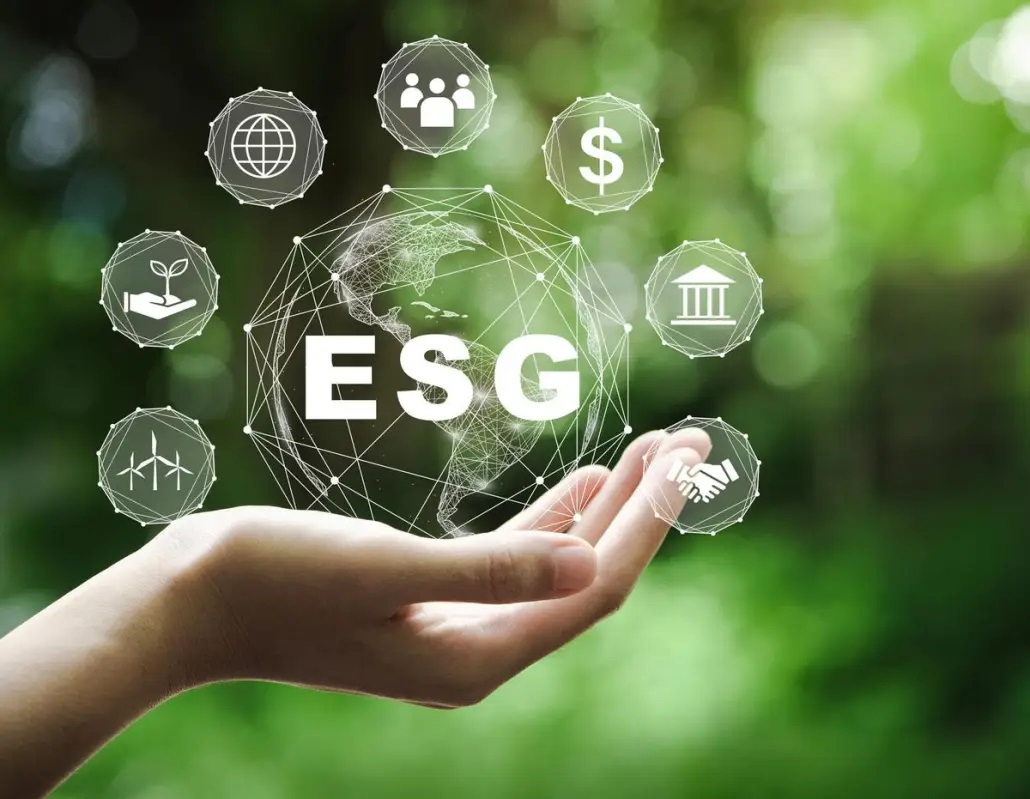Sustainable development economics has become a prominent field in recent years, and the acronym “ESG” (Environment, Social, Governance) has not only provided entrepreneurs with new concepts and models for business operations but has also become an indispensable part of long-term asset allocation and trend investment. More and more information indicates that European and American families have been heavily involved in and have laid out plans for the ESG field, betting on the future benefits of a new economic model.
The term “ESG” first appeared in the 2004 United Nations report “Who Cares Wins,” which advocated for the inclusion of ESG criteria in certain investment decisions. This has been shown to have an impact on a company’s long-term financial performance, thereby having a positive effect on society, financial markets, and individual investment portfolios, and was first given attention in Europe. In 2020, the extreme measures taken by countries to combat the COVID-19 pandemic further awakened global awareness of sustainable environmental issues, and also brought about significant potential and possibilities for economic transformation.

Why can ESG become a common hotspot direction for global corporate transformation and investment?
A recent survey by the Family Office Association of Hong Kong (FOAHK) shows that 85% of respondents in the family office industry plan to further increase the allocation of ESG-related assets.
Zheng Zhigang, the third-generation successor of the Zheng Yutong family and the CEO of New World Development in Hong Kong, once stated that sustainable development is not a zero-sum game, but is beneficial to everyone. The industry should consider how to incorporate ESG into business strategies. New World Development has already carried out 20 billion yuan of sustainable financial financing.
Zheng Zhigang said that with the rise of ESG, more family offices need to think about how to create value and need to adopt a multi-faceted approach. He also pointed out that sustainable education is very important. As educators, they have the responsibility to raise the awareness of the next generation in environmental protection and other aspects, and to educate young people on how to deal with climate change and public health issues.

**From the current geopolitical development status, although globalization has encountered certain obstacles, with the irreversible trend of industrialization in developing countries, the sustainable development model of enterprises will become a necessity and mainstream. If enterprises fail to pay attention to and intervene in the transformation of ESG early, they will face three major problems in the future:
Firstly, No money: Under the ESG wave, more and more financial institutions integrate ESG into the lending process, and if enterprises do not keep up with the times, it will affect their cash flow; Secondly, No Business: More and more enterprises require that the supply chain they connect with must meet ESG indicators, and if they do not meet the standards, they are likely to be excluded from the list of suppliers, resulting in the loss of orders; Thirdly, No future, if the enterprise’s cash flow and business encounter difficulties, the operation will inevitably be challenged.
**Europe is ahead, and China is following, under the overall direction of green and low-carbon, a large number of incentive policies have been formulated, and at the same time, restrictive policies have been formulated. Taking listed companies as an example, regulatory authorities have successively introduced self-inspection and adaptability requirements for ESG, and disclose them to the public regularly; in terms of taxation, financing, and corporate expansion, there are both positive and negative policies, forcing enterprises to take ESG issues seriously.**

It is worth noting that, in addition to the impact on corporate operations and finances, an increasing number of investment institutions, including investment funds associated with listed companies and family offices, are including ESG (Environmental, Social, and Governance) in their investment options and requirements. The ability to implement ESG not only affects corporate valuation considerations but also brings long-term investment returns to family businesses that invest in ESG research. This is also one of the original intentions of the government to encourage ESG, which leads to companies paying more attention to long-term investment and returns.
From the perspective of family offices, it is important to encourage and guide family businesses to participate in the standardization and investment of ESG, breaking the misconception that ESG is a cost center and overlooking the sustainable development and investment value that ESG brings to companies.
In this process, we believe that charitable trusts are one of the more direct and effective tools, providing multiple functions of trust, charity, inheritance, and ESG compliance for family clients.

The “charity” cause that trust companies are originally good at coincides with the “social responsibility” advocated by ESG.
As a financial instrument, charitable trusts are not only an important direction for the transformation of the trust industry, but also an important way to promote the third distribution of income. For the trust industry and society, the development of charitable trusts reflects that under the goal of common prosperity, the wealth and charity concepts of the public, especially high net worth individuals, are undergoing profound changes. If family wealth management can be realized through trust tools, and charitable trusts and other tools can be used to participate more in ESG adaptation and transformation, social public welfare undertakings, it can better realize corporate and social value.
Charitable trusts conform to the basic laws of the development of public welfare and charity, and are in line with the development trend of modern public welfare and charity. There will be a huge development space for charitable trusts in the future. From the social impact of charitable trusts, charitable trusts have attracted more social attention and media reports than asset management products. While achieving exposure, they also take root the concept of ESG.

Although charitable trusts have limited revenue-generating capabilities, creating public welfare value is an important issue in family wealth management. Integrating charitable trusts with family trust services to help high-net-worth individuals balance private and public interests will be an important aspect of trust companies’ family wealth management.
The “China Ultra-High Net Worth Individual Social Responsibility White Paper” released by BCG shows that the demand for China’s ultra-high net worth individuals to practice and give back to society is becoming increasingly strong. During the wealth management process, they consider social responsibility and impact factors, with a focus on areas such as the ecological environment, resources and energy, pollution, and climate. However, insufficient understanding, lack of guidance, and limited activity resources are the main challenges for ultra-high net worth individuals to practice social responsibility. Therefore, charitable trusts are an important way to meet the public welfare awareness and charitable intentions of high-net-worth customers.
In countries with developed trust systems, family trusts and charitable trusts are usually combined. **How to continuously innovate charitable methods, provide more practical options and institutional guarantees for the charitable intentions of high-net-worth individuals, has become an important issue and a business model that trust companies need to continuously explore.**

China Railway Trust recently released a special trust service plan, designed a trust product specifically for special needs groups such as families with mentally disabled individuals. The plan aims to integrate resources from various parties, including public welfare organizations, professional nursing service institutions, insurance brokers, and law firms, to provide reliable support and protection for the independent life of mentally disabled individuals after they reach adulthood and their parents are unable to care for them.
China Credit Trust has joined hands with People’s Insurance Company of China (PICC) to launch a comprehensive solution of “insurance + trust + service”. In the front end, it designs exclusive series of insurance products to cover vulnerable groups such as autism, providing exclusive personal protection and wealth preservation and appreciation. In the middle, it places the insurance policy into a trust to achieve asset isolation and special funds for special purposes, ensuring the financial security of families with autistic individuals. In the back end, it connects with various social care, medical service institutions, designated guardianship institutions, and supervisory hub institutions to form a service whitelist.
Clever positioning of charitable trusts
ESG poses challenges to the future development of companies, but it is also a source of the next business opportunities.
Many Hong Kong family offices intend to further increase the allocation of ESG (Environmental, Social, and Corporate Governance) related assets this year. According to a survey report, 79% of respondents from the family office industry have already started asset allocation related to ESG or impact investment. Among the respondents who have made ESG-related asset allocations, 52% have allocated more than 10%, and 27% have indicated that ESG-related allocations account for more than 20% of their assets.
According to data from Goldman Sachs Securities, since March of this year, stock funds have seen a large net outflow due to market influences, but ESG funds continue to attract capital inflows. This indicates that the market’s recognition of sustainable ESG investment is not affected by factors such as inflation and interest rate hikes.

It is suggested that companies should proactively incorporate ESG (Environmental, Social, and Governance) considerations into their operations at an early stage and regularly review the issues of concern to stakeholders such as the government, investors, and customers. Companies should consider establishing four ESG management strategies: mechanisms (establishing an ESG management mechanism), goals (formulating strategic objectives and ESG performance indicators), value (creating sustainable value for the company), and vision (becoming an industry benchmark company). By fully demonstrating management policies and performance, companies can enhance their resilience in the face of the ESG wave.
If the aforementioned measures are compiled into a company’s ESG report, it can respond to stakeholders’ concerns about sustainable development issues on the one hand, and on the other hand, it can reduce financing costs, enhance the company’s brand reputation, and identify business opportunities, thereby enhancing overall competitiveness and improving the company’s valuation level and investment value.
In summary, ESG is the new economic model for the future. By establishing relevant models and standards in the industry or investing in ESG-linked products at an early stage, companies can be more proactive and free in future industry competition and investment targets.

Please provide the content you would like to be extracted and translated into English.












